Gabapentin receptor alpha2delta-1 is a neuronal thrombospondin receptor responsible for excitatory CNS synaptogenesis
- PMID: 19818485
- PMCID: PMC2791798
- DOI: 10.1016/j.cell.2009.09.025
Gabapentin receptor alpha2delta-1 is a neuronal thrombospondin receptor responsible for excitatory CNS synaptogenesis
Abstract
Synapses are asymmetric cellular adhesions that are critical for nervous system development and function, but the mechanisms that induce their formation are not well understood. We have previously identified thrombospondin as an astrocyte-secreted protein that promotes central nervous system (CNS) synaptogenesis. Here, we identify the neuronal thrombospondin receptor involved in CNS synapse formation as alpha2delta-1, the receptor for the anti-epileptic and analgesic drug gabapentin. We show that the VWF-A domain of alpha2delta-1 interacts with the epidermal growth factor-like repeats common to all thrombospondins. alpha2delta-1 overexpression increases synaptogenesis in vitro and in vivo and is required postsynaptically for thrombospondin- and astrocyte-induced synapse formation in vitro. Gabapentin antagonizes thrombospondin binding to alpha2delta-1 and powerfully inhibits excitatory synapse formation in vitro and in vivo. These findings identify alpha2delta-1 as a receptor involved in excitatory synapse formation and suggest that gabapentin may function therapeutically by blocking new synapse formation.
Figures
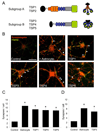
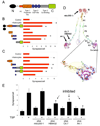
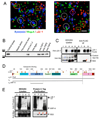
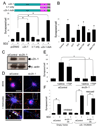
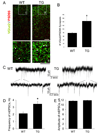
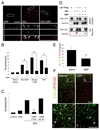

References
-
- Annis DS, Gunderson KA, Mosher DF. Immunochemical analysis of the structure of the signature domains of thrombospondin-1 and thrombospondin-2 in low calcium concentrations. The Journal of biological chemistry. 2007;282:27067–27075. - PubMed
-
- Arikkath J, Campbell KP. Auxiliary subunits: essential components of the voltage-gated calcium channel complex. Current opinion in neurobiology. 2003;13:298–307. - PubMed
Publication types
MeSH terms
Substances
Grants and funding
LinkOut - more resources
Full Text Sources
Other Literature Sources
Molecular Biology Databases
Miscellaneous

